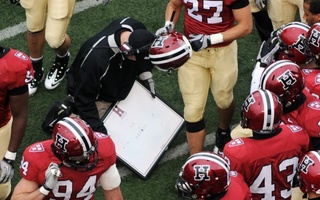Harvard is paying $90.67 per share for White River.
White River has a cash value of $235 million, meaning that 60 percent of its value is in liquid assets like stocks and cash, which it will sell to Harvard.
It serves insurance and automobile companies through vehicle valuation and accident estimation and by providing software. It also works in the sale, design and distribution of fashion accessories.
John S. Griswald, senior vice president of Common Fund, a cooperative that manages the endowments of several hundred universities and independent schools, says this diversity is not uncommon in holding companies.
"There are companies which are diverse and are very successful," Griswald says.
White River has a 328.9 percent revenue growth rate over the past three years.
Despite the apparent financial strength of White River, skepticism about HMC's decision looms large.
Some wonder why Harvard needs an entire company, as opposed to simply owning diverse investments in a variety of companies. Will the acquisition be profitable, they ask?
Others wonder why Harvard paid so much for a company with total assets worth only $345.5 million and with a $4.4 million net income in 1996.
Albert F. Gordon '59, a retired investment banker and HMC observer, estimates the market price of White River at $80 million, based on its assets and income.
"Harvard is paying a premium," he said at the time of the purchase.
HMC, however, has a strong record of investment in the past. Last year, it achieved 25.8 percent returns on its investment, 5.3 percent above the national average for university endowments.
Harvard does have at least one connection with White River: the company's chief financial officer, Michael E.B. Spicer, is a 1979 graduate of the Business School.
Jack R. Meyer, president of HMC, refused to comment on the details of this particular acquisition or general trends in Harvard's investments.
Tami E. Mason, vice president of HPG, says this reflects a trend in HPG toward "making fewer and larger investments."
Read more in News
POLICE LOGRecommended Articles
-
Harvard Will Buy Company For $442MIn what appears to be the largest single allocation of Harvard's lofty $11 billion endowment, Harvard has agreed to deal
-
A Tale of Two FundsAbout 15 investors gather around the table to summarize the week's markets, predict what will happen in the coming days
-
Red-Hot CapitalistThe Class reports on a Harvard graduate traditionally list not only his achievements but his prejudices, cants, and religious eccentricities.
-
Harvard Ups Stake In Spanish TV StationAt the Harvard Management Company, the head of the household walked out last year for a new life at a
-
 Top Five Fall Sports Games
Top Five Fall Sports Games -
River Run To Be Watched by PoliceHarvard University Police will be out in increased numbers to monitor underage drinking during River Run.













